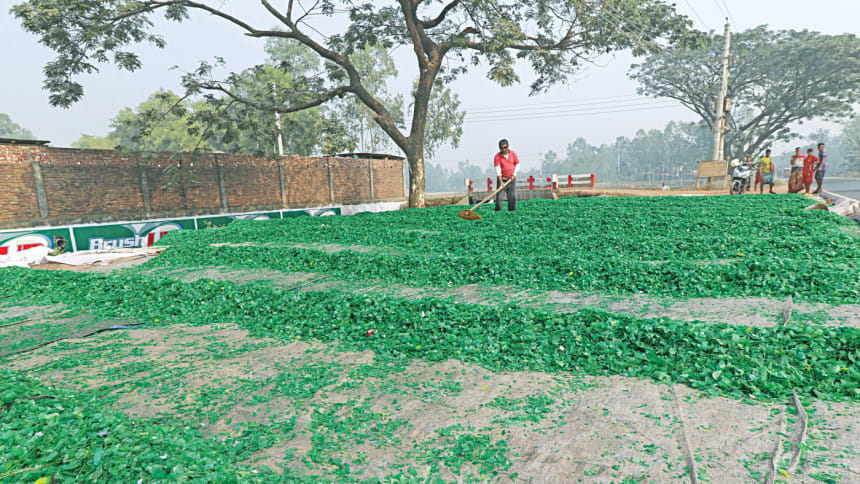A good example of plastic recycling

It is heartening to see ordinary people in the country's northern region taking it upon themselves to turn hazardous waste, such as discarded PET bottles and disposable syringes, back into raw materials for other products through recycling. The dumping of plastic waste into waterbodies and rivers has long been a menace for Bangladesh. And with rapid urbanisation, the problem has been getting worse.
According to a 2020 World Bank study, Bangladesh's plastic consumption in urban areas tripled over a span of 15 years. Of the 977,000 tons of plastic consumed in 2020, only 31 percent were recycled, according to the report. The other 69 percent ended up in landfills, rivers and canals, as well as drains and unserved areas. This unmanaged plastic waste can seriously pollute the environment and have far-reaching consequences on human health. Despite Bangladesh becoming the first country in the world to ban plastic shopping bags in 2002, due to a lack of enforcement by the authorities, the plastic problem has continued unabated. And not only has the government failed to enforce the ban as well as comply with a 2020 High Court directive to ban single-use plastic in coastal areas and all hotels and motels across the country, but it has also been incapable of managing all the plastic that is produced and used.
Amid such a crisis, it is the ordinary people in areas such as Rangpur and Dinajpur regions who are leading the way. Not only are these recycling hubs doing a fantastic job of recycling plastic waste, but through their successful operation, they have also managed to provide locals working at these factories with decent livelihoods. According to a report in this newspaper, nearly 1,000 plastic recycling factories have opened up across eight districts in the region. This has allowed people, starting from ragpickers to the factory workers, to earn some money—daily or monthly—while contributing to cleaning up the environment.
This is a wonderful example of how creative the people in our country are, and it is they who hold the key to creating an environmentally clean and prosperous Bangladesh through their hard work and innovativeness. However, it is also a matter of fact that recycling needs to take place on a much broader scale. Therefore, we call on the government to incentivise entrepreneurs and businesses who are involved in recycling through policy or financial supports, so that Bangladesh can quickly overcome the challenge of plastic pollution while creating employment for people at the same time.

 For all latest news, follow The Daily Star's Google News channel.
For all latest news, follow The Daily Star's Google News channel. 



Comments